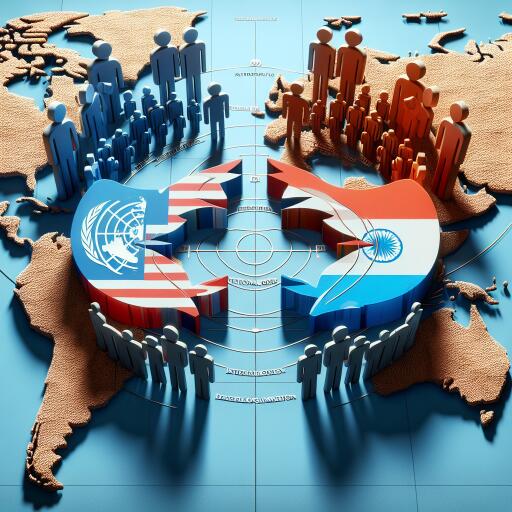Escalating Tensions: The International Debate Over Gaza’s Humanitarian Crisis
In a deepening humanitarian crisis, Gaza faces a stark warning of impending famine. With the conflict intensifying, an international hunger authority has raised alarms about the dire situation in northern Gaza, cautioning that without intervention, famine could become a reality. The repercussions of the war threaten to push nearly half of Gaza’s 2.3 million inhabitants to the brink of starvation, underscoring the urgent need for a resolution.
The refusal of the United States to approve resolutions calling for a cease-fire in Gaza has sparked significant controversy, marking the most pronounced discord between the U.S. and Israel since the onset of the conflict. Despite multiple attempts, the most recent being an Arab-endorsed proposal on February 20, the call for a halt in hostilities has been vetoed by the U.S. three times. This proposal garnered the support of 13 council members and had only one abstention, highlighting the overwhelming international consensus for a cease-fire.
Contrastingly, resolutions advocated by the U.S. aimed at establishing humanitarian pauses for aid delivery, safeguarding civilians, and ceasing the supply of arms to Hamas have faced vetoes from Russia and China. Citing these proposals’ failure to address global demands for an immediate cease-fire, both nations have remained steadfast in their opposition. The rejections represent not just a response to the conflict, but also the broader geopolitical tensions, with the U.S. facing criticism for its approach towards Israel amidst escalating frictions.
The denial of the latest U.S. resolution by Russia and China has intensified these divisions, with allegations that the resolution’s ambiguity falls short of the explicit call to end the fighting that is sought globally. This incident has thrown the international dynamics into sharper relief, showcasing how the Gaza conflict has become a point of contention among world powers.
Linda Thomas-Greenfield, representing the U.S., has articulated frustration over the positioning of Russia and China. She accuses both nations of exploiting the Gaza situation “as a political cudgel,” aiming to fragment the council at a critical juncture when unity and cooperation are paramount. This exchange epitomizes the intricate balance of international relations and the complexities involved in navigating the path to peace in regions marred by conflict.
The situation in Gaza remains a focal point for international diplomacy, reflecting not only on the immediate human suffering but also on the larger geopolitical chessboard. The rifts observed in the Security Council over how best to address the crisis mirror the challenges faced in achieving consensus on the global stage, particularly when national interests and regional dynamics are at play.
As the humanitarian emergency in Gaza deepens, the international community continues to grapple with finding a solution that can bring about peace and provide much-needed relief to the people caught in the crossfire of this enduring conflict.









